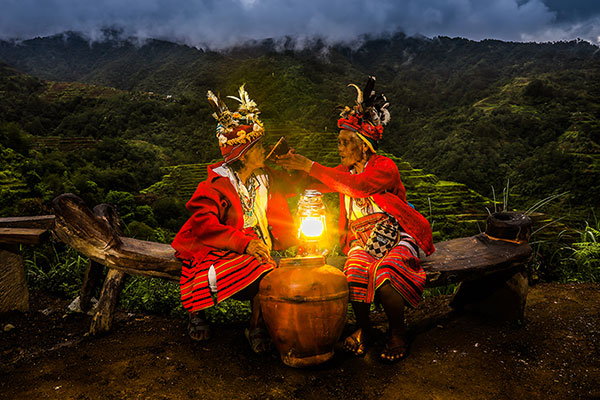Image credit: Network for the Indigenous Peoples Solomon (NIPS)
WHAT
A one-hour webinar to kickstart the Restore Her Rights Webinar Series to highlight women-led and gender-inclusive restoration efforts worldwide. This session will explore the intersection of ecosystem restoration and gender equality within the UN Decade on Ecosystem Restoration. It will highlight global commitments, discuss challenges and opportunities for gender-responsive restoration, and emphasize the role of women and marginalized communities in driving sustainable and inclusive restoration efforts.
WHEN
Friday, 25 April 2025 at 12.00 pm to 1.00 pm UTC. Please check your timezone here.
WHERE
Online event. Register for the event.
WHO
- Mrinalini Rai, Director, Women4Biodiversity – Opening Remarks
- Cecile Njebet, President and Founder, African Women’s Network for Community Management of Forests (REFACOF)
- Samantha Dávalos Segura, Ecosystem Restoration Specialist at UN Decade on Ecosystem Restoration
- Shruti Ajit, Programme Officer, Women4Biodiversity – Moderator
WHY
- Showcase Women’s Leadership – Highlight women-led and gender-inclusive restoration efforts, emphasising their contributions to biodiversity conservation and sustainable land management.
- Address Gender Barriers – Discuss challenges such as limited land rights, resource access, and decision-making power, and explore solutions for greater inclusion.
- Examine Policy Frameworks – Analyze global commitments, including the UN Decade on Ecosystem Restoration, KM-GBF, and UNCCD, to understand their role in advancing gender-responsive restoration.
- Strengthen Gender-Responsive Approaches – Provide insights on integrating gender perspectives into restoration policies, programs, and decision-making.
- Foster Community of Practice– Connect practitioners, policymakers, and community leaders to strengthen partnerships and advocate for gender-equitable restoration policies and programs.


Espanol
QUÉ
Un seminario web de una hora para poner en marcha la serie de seminarios web Restore Her Rights con el fin de destacar los esfuerzos de restauración liderados por mujeres y que incluyen la perspectiva de género en todo el mundo. Esta sesión explorará la intersección entre la restauración de los ecosistemas y la igualdad de género en el marco del Decenio de las Naciones Unidas para la Restauración de los Ecosistemas. Se destacarán los compromisos mundiales, se debatirán los retos y las oportunidades de la restauración con perspectiva de género y se hará hincapié en el papel de las mujeres y las comunidades marginadas a la hora de impulsar esfuerzos de restauración sostenibles e inclusivos.
CUÁNDO
Viernes 25 de abril de 2025 de 12.00 a 13.00 UTC. Compruebe su zona horaria aquí.
DÓNDE
Evento en línea. Inscríbase en el evento.
QUIÉN
- Mrinalini Rai, Directora, Women4Biodiversity – Discurso de apertura
- Cecile Njebet, Presidenta y Fundadora, The African Women’s Network for Community Management of Forests (REFACOF)
- Samantha Dávalos Segura, Especialista en Restauración de Ecosistemas del Decenio de las Naciones Unidas para la Restauración de los Ecosistemas
- Shruti Ajit, Oficial de Programas, Women4Biodiversity – Moderadora
POR QUÉ
- Mostrar el liderazgo de las mujeres – Destacar los esfuerzos de restauración liderados por mujeres y con perspectiva de género, haciendo hincapié en sus contribuciones a la conservación de la biodiversidad y la gestión sostenible de la tierra.
- Abordar las barreras de género – Debatir retos como la limitación de los derechos sobre la tierra, el acceso a los recursos y el poder de decisión, y explorar soluciones para una mayor inclusión.
- Examinar los marcos políticos – Analizar los compromisos globales, incluyendo la Década de las Naciones Unidas sobre Restauración de Ecosistemas, el KM-GBF y la UNCCD, para entender su papel en el avance de la restauración sensible al género.
- Fortalecer los enfoques sensibles al género – Proporcionar ideas sobre la integración de las perspectivas de género en las políticas de restauración, programas y toma de decisiones.
- Fomentar la Comunidad de Práctica – Conectar a profesionales, responsables políticos y líderes comunitarios para fortalecer las asociaciones y abogar por políticas y programas de restauración con equidad de género.
Francais
QUOI
Un webinaire d’une heure pour lancer la série de webinaires Restore Her Rights afin de mettre en lumière les efforts de restauration menés par les femmes et intégrant la dimension de genre dans le monde entier. Cette session explorera l’intersection de la restauration des écosystèmes et de l’égalité des sexes dans le cadre de la Décennie des Nations unies pour la restauration des écosystèmes. Elle mettra en évidence les engagements mondiaux, discutera des défis et des opportunités pour une restauration sensible au genre, et soulignera le rôle des femmes et des communautés marginalisées dans la conduite d’efforts de restauration durables et inclusifs.
QUAND
Vendredi 25 avril 2025 de 12h00 à 13h00 UTC. Veuillez vérifier votre fuseau horaire ici.
Où
Événement en ligne. S’inscrire à l’événement.
QUI
- Mrinalini Rai, Directrice, Women4Biodiversity – Remarques d’ouverture
- Cecile Njebet, Présidente et Fondatrice, Femme en action pour la protection et la conservation de la biodiversité naturelle (REFACOF)
- Samantha Dávalos Segura, Spécialiste de la restauration des écosystèmes à la Décennie des Nations Unies pour la restauration des écosystèmes
- Shruti Ajit, Chargée de programme, Women4Biodiversity – Modératrice
POURQUOI
- Mettre en avant le leadership des femmes – Mettre en avant les efforts de restauration menés par les femmes et intégrant le genre, en soulignant leurs contributions à la conservation de la biodiversité et à la gestion durable des terres.
- Aborder les obstacles liés au genre – Discuter des défis tels que les droits fonciers limités, l’accès aux ressources et le pouvoir de décision, et explorer des solutions pour une plus grande inclusion.
- Examiner les cadres politiques – Analyser les engagements mondiaux, y compris la Décennie des Nations unies pour la restauration des écosystèmes, la KM-GBF et l’UNCCD, afin de comprendre leur rôle dans l’avancement de la restauration sensible au genre.
- Renforcer les approches sensibles au genre – Fournir des idées sur l’intégration des perspectives de genre dans les politiques, les programmes et la prise de décision en matière de restauration.
- Favoriser la communauté de pratique – Connecter les praticiens, les décideurs politiques et les leaders communautaires pour renforcer les partenariats et plaider en faveur de politiques et de programmes de restauration équitables du point de vue du genre.
Event Summary
The inaugural webinar of the Restore Her Rights Webinar Series marked a significant milestone in advancing gender equality within the global ecosystem restoration agenda. Organised in collaboration with the UN Decade on Ecosystem Restoration, the session brought together experts and advocates to emphasise the critical role of women in restoration efforts and to explore strategies for integrating gender perspectives into environmental action.
The webinar introduced the Restore Her Rights Initiative, a collaborative effort to highlight and address the intersection of women’s rights and ecosystem restoration. The initiative is structured around four key pillars: an advocacy hub to amplify gender voices, evidence building through storytelling, a community exchange platform for practitioners and activists, and a learning resource centre offering knowledge and tools to support gender-integrated approaches.
Mrinalini Rai, Director of Women4Biodiversity, opened the session by highlighting the persistent invisibility of women in conservation and restoration narratives. She emphasised that despite women’s crucial roles in managing and restoring ecosystems, their contributions often go unrecognised. She called for a transformative shift in conceptualising and implementing restoration initiatives, advocating for inclusive, equitable approaches that recognise women’s rights and leadership.
The panellists included Samantha Davalos, Ecosystem Restoration Specialist, from the UN Decade on Ecosystem Restoration and Cecile Ndjebet, a women’s rights advocate and gender specialist and founder of the African Women’s Network for Community Management of Forests (REFACOF). Samantha explained that gender equality is recognised as a cross-cutting priority for the UN Decade, with ongoing efforts to ensure equitable participation in decision-making processes and fair benefit-sharing in restoration initiatives. Cecile emphasised the urgency of securing land tenure for women and increasing access to resources. She noted that without such foundational rights and support, restoration efforts risk being neither sustainable nor just.
A major theme throughout the discussion was the need for capacity building, particularly for women and girls, to ensure meaningful participation in restoration projects. Cecile spoke about the barriers women face in accessing funding, calling for financial mechanisms that provide direct support to women-led initiatives. Samantha echoed this, noting that capacity-building efforts should be aligned with community realities and grounded in understanding local social dynamics.
The conversation also underscored the importance of involving men as allies, providing training, and adopting agroforestry and other livelihood-enhancing practices. These approaches support communities and ensure women’s empowerment is embedded in environmental action.
The webinar concluded with a forward-looking agenda to deepen and expand gender-responsive restoration efforts. The UN Decade team share that they aim to conduct a midterm review of progress on gender integration. The UN Decade Advisory Board will explore the formal creation of a gender task force to guide the work of partners and stakeholders. The goal of this task force would be to promote coherence and accountability in how gender equality is integrated into ecosystem restoration planning and execution at the international level. Partners to the UN Decade are also encouraged to promote targeted resources and training programs designed with a gender lens for women’s organisations and grassroots movements working on restoration.
The session reinforced a clear message. Achieving effective and equitable ecosystem restoration is not possible without the active involvement, leadership, and empowerment of women. The integration of gender equality is not a peripheral concern but a central component of successful, lasting environmental restoration.





